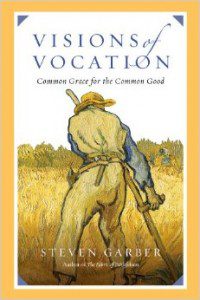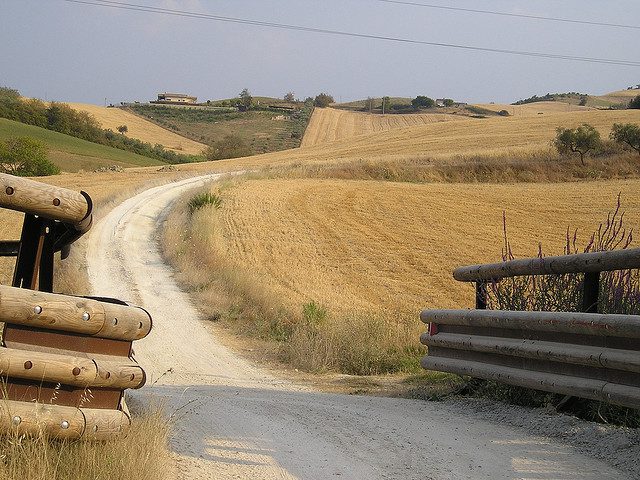 This excerpt from Steve Garber’s book Visions of Vocation is reprinted here with the kind permission of InterVarsity Press. Stay tuned as we continue to occasionally publish excerpts from the book here at Visions of Vocation the blog. And get the book from IVP at this link!
This excerpt from Steve Garber’s book Visions of Vocation is reprinted here with the kind permission of InterVarsity Press. Stay tuned as we continue to occasionally publish excerpts from the book here at Visions of Vocation the blog. And get the book from IVP at this link!
If at the core of the calling to be human is the task to know and do rightly, to act responsibly in history, to coherently connect knowledge with understanding with love, then there must be a reason for being that makes sense of human relationships and responsibilities in those terms, a context for seeing what one believes and how one lives as a seamless whole. For the Hebrew people, this comes from their understanding of covenant. They are the covenant people, called into being by the covenant God who in the beginning created a cosmos where human beings are to live faithfully, making covenant with him, each other and the world (Genesis 1– 2), a cosmos where coherence is both plausible and possible. And generation by generation, God continued to “covenant” with his people— with Noah, Abraham, Moses, David—and of course, in the Christian vision, the life, death and resurrection of Jesus is the covenant incarnate, the covenant made flesh, living for a while among us.
But what is a covenant? What is it to covenant? Words like agreement  and contract begin to explain, and yet they are insufficient to communicate the rich character of the word as it comes to us in the Hebrew scripture. First of all, there is no definition that is once for all given. For the Hebrew people, whose theology unfolded over time as they saw God work in history, the word could only become clear as they interpreted their experience in its light, listening carefully to what God said, but also watching carefully what God did. God spoke in history and God made covenants with particular people in particular places, but the meaning could only be understood as the word was lived out before their eyes.
and contract begin to explain, and yet they are insufficient to communicate the rich character of the word as it comes to us in the Hebrew scripture. First of all, there is no definition that is once for all given. For the Hebrew people, whose theology unfolded over time as they saw God work in history, the word could only become clear as they interpreted their experience in its light, listening carefully to what God said, but also watching carefully what God did. God spoke in history and God made covenants with particular people in particular places, but the meaning could only be understood as the word was lived out before their eyes.
From beginning to end , the word covenant represents the reality that God is holy, holy, holy— and expects his people to be so, too. Covenants reveal a God who is gracious and compassionate— and expects his people to be so, too. A covenant was a call to live rightly, to act justly— images that imply a “north star,” which is the character of God himself. This is who I am, this is who you are and this is the way you are to live. The word is dynamic, not static. But it has content, weight and substance . It is not an ideal out in the heavens, a covenant to be idealized in some otherworldly realm but never truly understood in the flesh-and-blood, push-comes-to-shove of everyday experience . Rather, it is only understood in history as God reveals himself to his people, time and again calling them to be like him in the world, to care for the world as he does, to know and understand and love as he does.
Image: Roberto La Forgia, “The Way.”
Taken from Visions of Vocation by Steven Garber. Copyright (c) 2014 by Steven Garber. Used by permission of InterVarsity Press, P.O. Box 1400, Downers Grove, IL 60515-1426. www.ivpress.com











